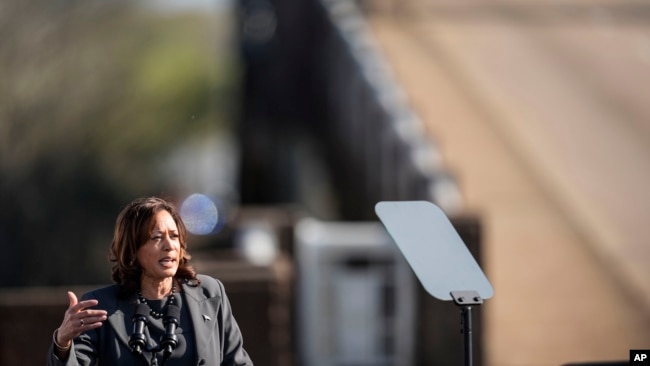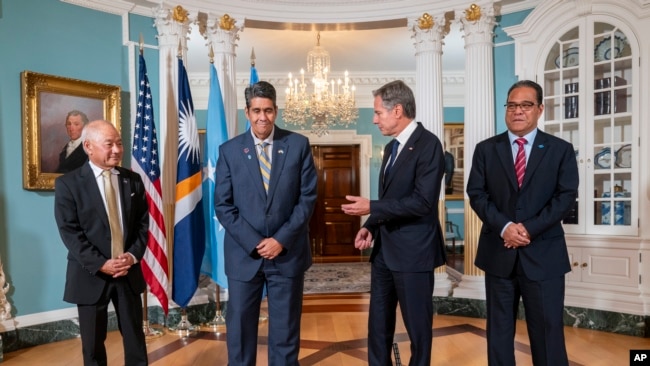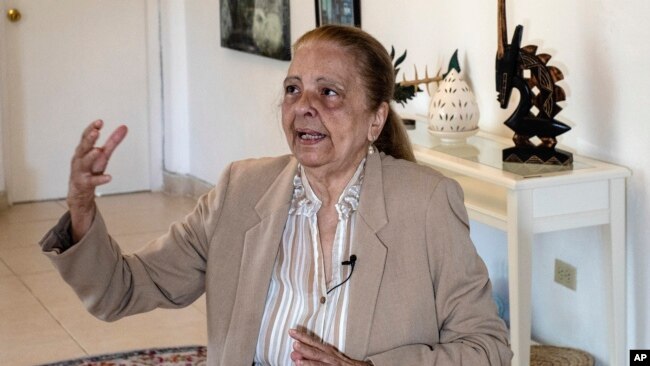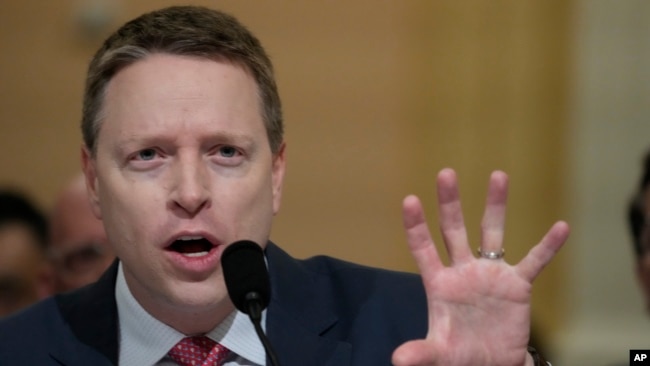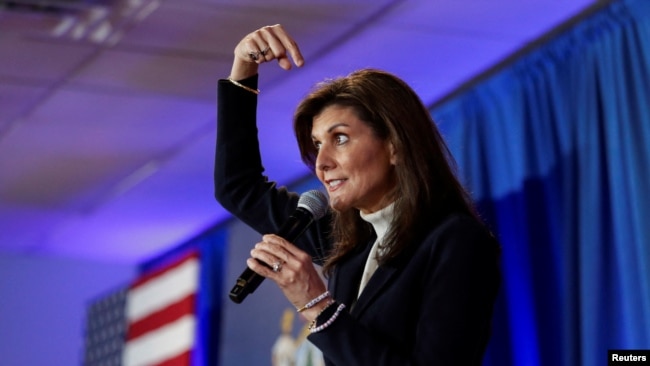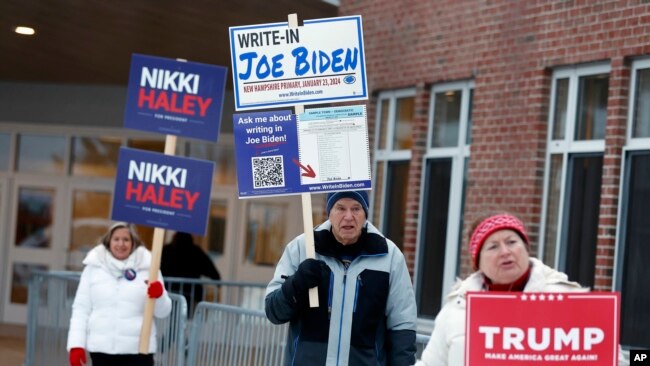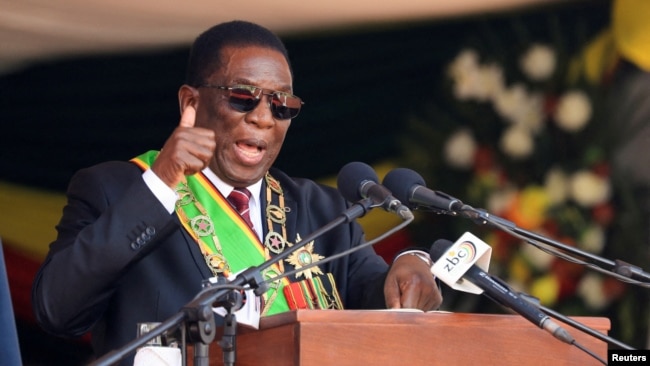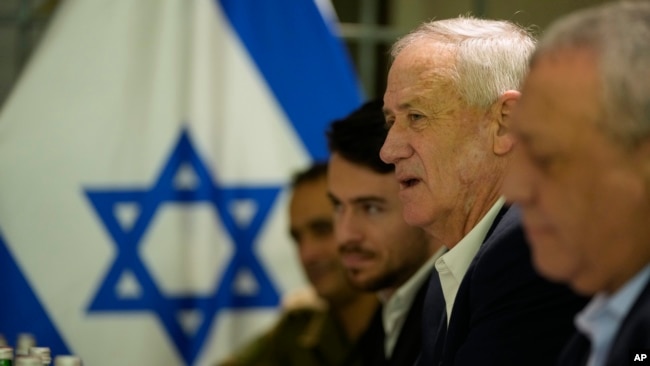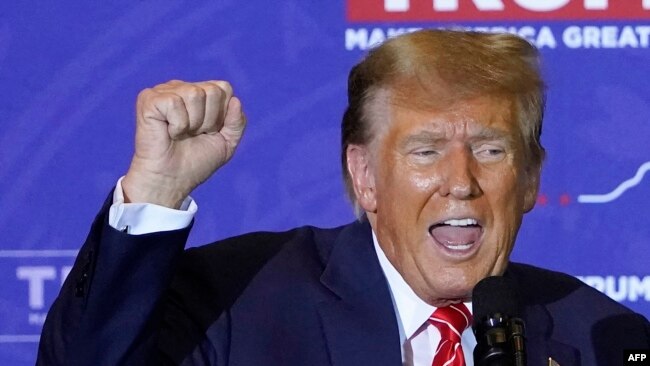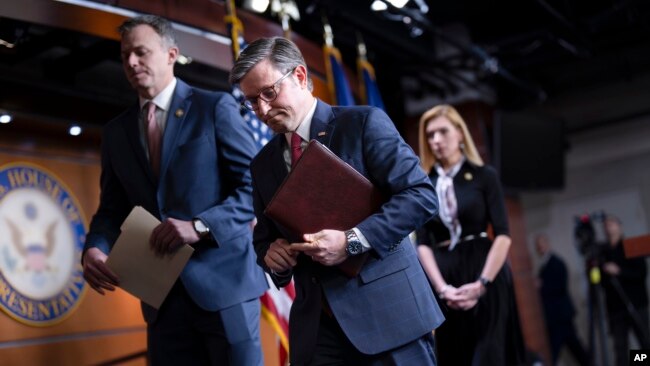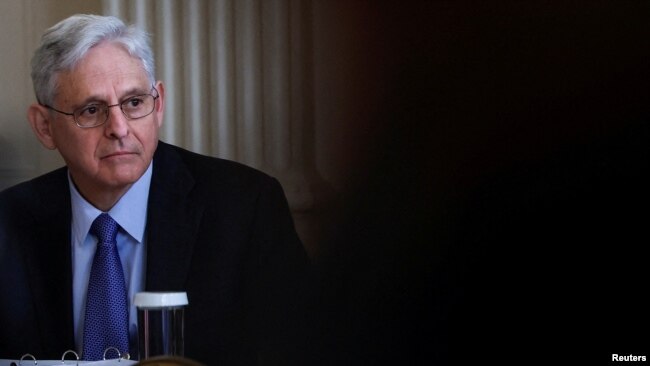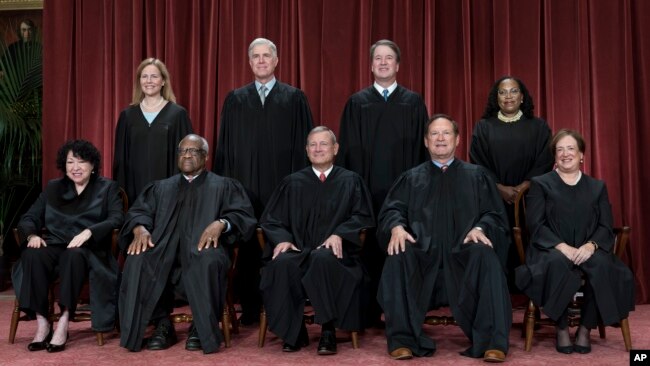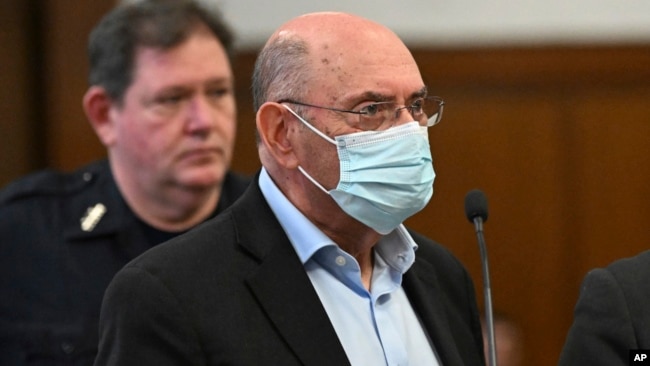북한 김정은 “지방에 생필품 조차 제공 못해” 인정…한국 “핵 개발로 인한 고립 자초가 원인”
North Korean leader Kim Jong-un admits "he can't even provide daily necessities to the provinces"...South Korea "isolation caused by nuclear development"
페이지 정보
작성자 김환용 작성일 24-01-26 05:05 댓글 0본문
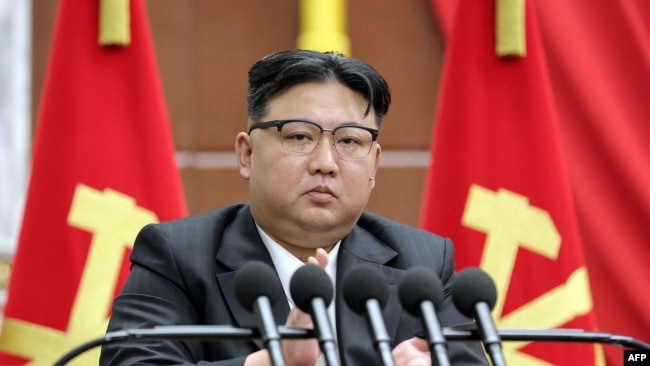
김정은 북한 국무위원장이 지난달 노동당 제8기 제9차 전원회의에서 발언하고 있다. 조선중앙통신이 공개한 사진. (자료사진)
North Korean leader Kim Jong Un speaks at the 9th plenary session of the 8th Workers' Party last month. Photo released by the Korean Central News Agency. (courtesy photo)
김정은 북한 국무위원장은 지방 민생이 생필품 조차 구하기 어려운 수준이라고 인정하면서, 이는 심각한 정치적 문제라고 간부들을 질타했습니다. 한국 정부는 핵무기 개발과 도발로 북한이 고립을 자초한 게 근본적인 원인이라고 지적했습니다. 서울에서 김환용 기자가 보도합니다.
North Korean leader Kim Jong-un has criticized officials for being a serious political problem, acknowledging that local people's livelihoods are at a level where even daily necessities are hard to come by. The South Korean government pointed out that the root cause was North Korea's self-isolation with its nuclear weapons development and provocations. Reporter Kim Hwan-yong reports from Seoul.
북한 대외 관영 ‘조선중앙통신’과 노동당 기관지 ‘노동신문’은 “당 중앙위원회 제8기 제19차 정치국 확대회의가 지난 23∼24일 열렸고 김정은 국무위원장이 참석했다”고 25일 보도했습니다.
North Korea's state-run "North Korean Central News Agency" and the Rodong Sinmun, the official newspaper of the Workers' Party, reported on the 25th that "the 8th 19th Political Bureau Expansion Meeting of the Party Central Committee was held on the 23rd and 24th, and Chairman Kim Jong-un attended."
김 위원장은 회의에서 “지방 인민들에게 기초식품과 식료품, 소비품을 비롯한 초보적인 생활필수품조차 원만히 제공하지 못하고 있는 것은 당과 정부가 도저히 외면할 수 없는 심각한 정치적 문제”라고 말했습니다.
Chairman of the states Affairs Commission Kim said at the meeting, "It is a serious political problem that the party and the government cannot turn a blind eye to the failure to provide even basic daily necessities, including basic food, food, and consumption, to the local people."
김 위원장은 정책 지도부서, 경제기관이 굼때고 있다고 비판하고 “조건이 유리한 몇 개 시와 군만 지방공업공장을 건설하고 나머지 시, 군들은 소극적 태도를 취했다”고 질타했습니다.
Chairman of the states Affairs Commission Kim criticized the policy leadership department and economic institutions for being slow and criticized, "Only a few cities and counties with favorable conditions built local industrial plants, and the rest of the cities and counties took a passive attitude."
김 위원장은 그러면서 당의 ‘지방발전 20x10 정책’은 이상과 선전이 아닌 실제 계획성을 띤 실행 담보를 바탕으로 한 거대한 변혁적 노선이라며 이행을 강력 주문했습니다.
At the same time, Chairman Kim strongly called for implementation, saying that the party's "local development 20x10 policy" is a huge transformation line based on actual planning collateral, not ideals and propaganda.
‘지방발전 20×10 정책’은 김 위원장이 지난 15일 최고인민회의 제14기 제10차 회의 시정연설에서 “현 시기 중요한 문제는 수도와 지방의 차이, 지역 간 불균형을 극복하는 것”이라며 제시한 지방경제 개선책입니다.
The "Local Development 20×10 Policy" is a measure to improve the local economy that Chairman Kim suggested in his speech at the 14th 10th session of the Supreme People's Assembly on the 15th, saying, "The important issue at this time is to overcome the difference between the capital and provinces and the imbalance between regions."
매년 20개 군에 현대적인 지방공업공장을 건설해 10년 안에 전국 인민의 초보적인 물질문화 생활수준을 한 단계 발전시키겠다는 내용입니다.
The plan is to build modern local industrial factories in 20 counties every year to develop the basic living standards of material culture for the nation's people within 10 years.
김 위원장은 도별로 해마다 2개 군에 지방공업공장을 건설하라고 지시하고, 이를 위해 인민군을 순차적으로 동원하는 계획을 세우라며 해당 명령서에 서명했습니다.
Chairman Kim ordered two counties to build local industrial factories each year, and signed the order to draw up a plan to mobilize the People's Army sequentially to do so.
그는 또 “당 중앙은 지방 발전 정책 집행 정형을 놓고 도와 시, 군당 책임 비서들을 평가할 것”이라며 당의 지방 담당자들에게 책임을 묻겠다고 예고했습니다.
He also said, "The party's center will evaluate the city and county chiefs over the implementation of local development policies," signaling that he will hold the party's local officials accountable.
한국 정부는 김 위원장의 이 같은 발언은 최근 평양과 지방 간 격차가 더욱 심각해졌기 때문이라고 평가했습니다.
The South Korean government attributed Kim's remarks to the recent widening gap between Pyongyang and the provinces.
통일부는 “북한은 정권에 대해 핵심계층의 지지를 확보하고자 평양에 자원을 집중하는 체제인데, 국제사회의 대북 제재와 신종 코로나바이러스 감염증 사태에 따른 봉쇄가 계속되면서 평양과 지방의 격차는 더 커졌을 것”이라며 북한 당국이 과감한 조치가 필요할 만큼의 심각한 상황으로 판단한 것으로 추정된다고 밝혔습니다.
The Ministry of Unification said, "North Korea is focusing resources on Pyongyang to secure the support of the core class for the regime, and the gap between Pyongyang and the province will have widened as international sanctions against North Korea and the lockdown due to the novel coronavirus infection continue."
김인애 통일부 부대변인은 26일 브리핑에서 “북한은 2022년부터 농촌 살립집 건설을 본격화했지만 실적은 부진한 상황”이라며 이같이 말했습니다.
Kim In-ae, a deputy spokesperson for the Ministry of Unification, said in a briefing on the 26th, "North Korea has started building rural salivary houses in earnest since 2022, but its performance is sluggish."
[녹취: 김인애 부대변인] “주민 생활에 있어서도 식량 배급 경험 또 배급량 등에 있어서 평양과 지방 간 차등적 배급 혜택이 있는 것으로 알려져 있습니다. 또한 의료, 교육 측면에서도 인프라 수준, 서비스 접근성 등 격차로 인해서 이런 불평등이 심화되어 있는 상황입니다.”
[Record: Deputy Spokesperson Kim In-ae] "It is known that there are differential distribution benefits between Pyongyang and the provinces in terms of food distribution experience and distribution in residents' lives. In addition, in terms of medical care and education, this inequality is intensifying due to gaps in infrastructure level and access to services."
통일부 당국자는 “사태의 근본적인 원인은 북한이 그동안 민생을 외면하고 무기 개발과 도발로 국제 제재와 고립을 자초했기 때문”이라고 비판했습니다.
An official from the Ministry of Unification criticized, "The root cause of the situation is that North Korea has ignored people's livelihoods and has caused international sanctions and isolation through weapons development and provocations."
탈북민 출신의 북한 경제 전문가 조충희 굿파머스 연구소장은 신종 코로나 사태를 거치면서 중국산 생필품에 의존했던 지방 민생경제가 한층 악화됐고 한정된 자원과 노동력을 평양 건설에 집중하면서 지방 주민들의 불만이 커진 상태라고 말했습니다.
Cho Chung-hee, a North Korean economic expert who was a North Korean defector, said that the local people's livelihood, which relied on Chinese daily necessities, has worsened due to the COVID-19 outbreak, and that local residents' dissatisfaction has grown as they focus limited resources and labor on building in Pyongyang.
김영희 남북하나재단 대외협력부장은 선대 지도자와 달리 김정은 시대 들어 북한은 주택, 산업시설, 레저시설 등 평양 발전에 집중했다며 배급제가 붕괴되면서 당과 국가에 대한 충성심이 예전같지 않고 외부 소식에 밝아진 지방 주민들의 불만이 심각한 상황이라고 말했습니다.
Kim Young-hee, head of the external cooperation department of the Hana Foundation of North and South Korea, said, "Unlike our predecessor, North Korea focused on developing Pyongyang, including housing, industrial facilities and leisure facilities," adding, "As the rationing system collapsed, loyalty to the party and the country is not the same as before, and local residents are dissatisfied with the news."
[녹취: 김영희 대외협력부장] “지금은 전화 다 돼죠, TV에서 평양만 계속 나오죠. 과거 북한 사람들은 수도니까 나라의 얼굴이니 당연히 좋아져야지 라고 했는데 지금은 나라에서 주는 게 없고 내가 스스로 알아서 살아야 하니까 왜 평양만 잘 살아야 하냐 이렇게 불만의 목소리가 나오죠.”
[Record: Kim Young-hee, Director of External Cooperation] "Now I can make phone calls, only Pyongyang keeps coming out on TV. In the past, North Koreans said, "Since it's the capital city, the face of the country, of course, I should get better," but now there are voices of dissatisfaction saying, "Why should only Pyongyang live well because I have to live on my own and not give anything from the country?"
통일부가 작년 9월 공개한 탈북민 3천415명 대상 심층면접 결과를 보면 식량배급 경험률은 평양, 접경지역, 평양 외 비접경지역 순으로 65.2%, 32.0%, 27.9%로 조사됐으며 생필품 배급 경험률도 50.7%, 25.9%, 27.7%로 나타났습니다.
According to the results of in-depth interviews with 3,415 North Korean defectors released by the Ministry of Unification in September last year, the food distribution experience rate was 65.2 percent, 32.0 percent, and 27.9 percent in the order of Pyongyang, the border area, and non-border areas outside Pyongyang, and 50.7 percent, 25.9 percent, and 27.7 percent of the daily necessities distribution experience rate.
북한이 ‘지방발전 20×10 정책’을 지방경제 살리기 카드로 내놓으면서 기존의 핵 무력 강화 행보와 투 트랙 기조를 보이는 데 대해 무리한 정책 추진이라는 지적이 나옵니다.
It is pointed out that North Korea is unreasonable to implement the existing nuclear force strengthening and two-track stance as it introduced the "local power generation 20×10 policy" as a card to revive the local economy.
한국 정부 산하 국책연구기관인 통일연구원 조한범 박사는 북한은 이미 국가 자원의 상당 부분을 국방력에 투입했고 핵무기 체계 등을 유지 보수하는 비용 또한 천문학적 규모이기 때문에 핵 무력 고도화와 경제라는 두 마리 토끼를 잡긴 힘들 것이라고 진단했습니다.
Dr. Cho Han-beom of the Institute for National Unification, a state-run think tank under the South Korean government, said North Korea has already invested much of its national resources in defense and the cost of maintaining nuclear weapons systems is also astronomical, so it will be difficult to catch two birds with one stone: upgrading nuclear force and the economy.
조 박사는 또 중앙이 파괴돼도 지방의 각 시, 군이 자력 생존할 수 있는 기반을 갖춘다는 군 단위 경제론은 북한의 전통적인 경제전략인데, 이를 위해 필요한 생산설비 수입이 국제사회 제재 상황에선 사실상 불가능하다고 말했습니다.
Dr. Cho also said that the military-level economic theory that even if the center is destroyed, each city and county in the province will have a foundation to survive on their own is a traditional economic strategy in North Korea, and imports of production facilities necessary for this are virtually impossible under international sanctions.
[녹취: 조한범 박사] “군의 생산설비들은 상당 부분 수입해야 합니다. 그렇기 때문에 자체에서 문제를 해결하라는 건데 대북 제재가 철저하게 가동되는 상황에서 20개의 현대화 공장을 만드는 건 불가능하다고 볼 수 있고요. 만든다면 모두 부실화할 거다, 따라서 지방발전 20x10 정책은 실현 불가능한 정책에 가깝기 때문에 김정은 위원장이 저렇게 꼭 해야 한다고 강조하는 겁니다.”
[Record: Dr. Cho Han-beom] "A significant portion of the military's production facilities must be imported. That's why I'm asking you to solve the problem yourself, but it's impossible to build 20 modernization factories at a time when sanctions against North Korea are fully operational. If we make it, all of them will be insolvent, so I'm emphasizing that Chairman Kim Jong-un must do that because the 20x10 policy for local power generation is close to an impossible policy."
북한이 러시아와의 밀착, 그리고 국경 봉쇄 해제에 따른 중국과의 교역 회복 등을 국제사회 제재를 상쇄할 수 있는 조건들로 보고 정책을 추진하고 있다는 관측도 나옵니다.
Some observers say that North Korea is pursuing a policy based on its close ties with Russia and the restoration of trade with China following the lifting of the border blockade as conditions that can offset international sanctions.
특히 러시아로부터 무기 지원의 대가로 공장 가동에 필요한 에너지와 밀과 같은 원료를 받거나 현금 수입을 기대할 수 있다는 겁니다.
In particular, you can expect to receive energy and raw materials such as wheat or cash imports from Russia in exchange for weapons aid.
경남대 극동문제연구소 임을출 교수입니다.
I am Professor Lim Eul-chul of the Institute for Far East Studies at Kyungnam University.
[녹취: 임을출 교수] “북한 입장에선 올 한 해 러시아와 최대한 경제협력 수준을 높여놓고 또 중국과도 기존 협력을 회복시키고 이런 과정을 통해서 자신들이 제시한 경제발전 계획과 주민생활 향상 과제를 최대한 목표 달성을 하고자 하는 그런 의도가 있어 보입니다.”
[Record: Professor Lim Eul-chul] "North Korea seems to intend to raise the level of economic cooperation with Russia as much as possible this year, restore existing cooperation with China, and achieve their goals as much as possible through this process."
임 교수는 또 미국과 한국이 대통령선거, 국회의원 선거로 국내 정치에 몰두해야 하는 올해를 북한이 경제에 집중할 수 있는 시기로 판단한 것으로 보인다고 말했습니다.
Lim also said that the U.S. and South Korea have decided that this year, when they have to immerse themselves in domestic politics through presidential and parliamentary elections, is a time for North Korea to focus on its economy.
서울에서 VOA뉴스 김환용입니다.
I'm Kim Hwan Yong from VOA News in Seoul.
Forum
Forum
출처 : VOA한국
댓글목록 0
등록된 댓글이 없습니다.


